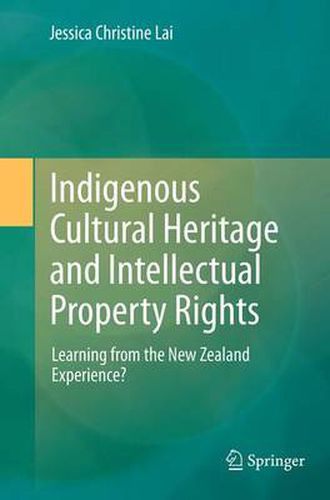Readings Newsletter
Become a Readings Member to make your shopping experience even easier.
Sign in or sign up for free!
You’re not far away from qualifying for FREE standard shipping within Australia
You’ve qualified for FREE standard shipping within Australia
The cart is loading…






This title is printed to order. This book may have been self-published. If so, we cannot guarantee the quality of the content. In the main most books will have gone through the editing process however some may not. We therefore suggest that you be aware of this before ordering this book. If in doubt check either the author or publisher’s details as we are unable to accept any returns unless they are faulty. Please contact us if you have any questions.
Now more than ever, indigenous peoples’ interests in their cultural heritage are in the spotlight. Yet, there is very little literature that comprehensively discusses how existing laws can and cannot be used to address indigenous peoples’ interests. This book assesses how intangible aspects of indigenous cultural heritage (and the tangible objects that hold them) can be protected, within the realm of a broad range of existing legal orders, including intellectual property and related rights, consumer protection law, common law and equitable doctrines, and human rights. It does so by focusing on the New Zealand Maori. The book also looks to the future, analysing the long-awaited Wai 262 report, released in New Zealand by the Waitangi Tribunal in response to allegations that the government had failed in its duty to ensure that the Maori retain chieftainship over their tangible and intangible treasures, as required by the Treaty of Waitangi, signed between the Maori and the British Crown in 1840.
$9.00 standard shipping within Australia
FREE standard shipping within Australia for orders over $100.00
Express & International shipping calculated at checkout
This title is printed to order. This book may have been self-published. If so, we cannot guarantee the quality of the content. In the main most books will have gone through the editing process however some may not. We therefore suggest that you be aware of this before ordering this book. If in doubt check either the author or publisher’s details as we are unable to accept any returns unless they are faulty. Please contact us if you have any questions.
Now more than ever, indigenous peoples’ interests in their cultural heritage are in the spotlight. Yet, there is very little literature that comprehensively discusses how existing laws can and cannot be used to address indigenous peoples’ interests. This book assesses how intangible aspects of indigenous cultural heritage (and the tangible objects that hold them) can be protected, within the realm of a broad range of existing legal orders, including intellectual property and related rights, consumer protection law, common law and equitable doctrines, and human rights. It does so by focusing on the New Zealand Maori. The book also looks to the future, analysing the long-awaited Wai 262 report, released in New Zealand by the Waitangi Tribunal in response to allegations that the government had failed in its duty to ensure that the Maori retain chieftainship over their tangible and intangible treasures, as required by the Treaty of Waitangi, signed between the Maori and the British Crown in 1840.